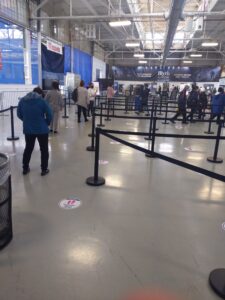Still hesitancy surrounding Moderna-Pfizer mix
 TORONTO – In Ontario, anyone who has received the first dose of the Pfizer vaccine is currently facing a Hamletic doubt. Follow the directions of federal, provincial and city health authorities and accept the second dose of the Moderna vaccine (the only vaccine available at this time) or wait until Pfizer supplies return to constant? The answer is not easy, despite repeated appeals from virologists, experts and representatives of the various levels of government. We have to start with a fact. At the beginning of June, NACI – the regulator charged with examining the safety and efficacy of vaccines in Canada – had made a number of recommendations that have since been implemented in Ontario over the past ten days. According to NACI, it would be recommended to administer the first and second dose of the same vaccine. In case there is no availability, then it would be advisable to use a vaccine of the same mNRA family, then Pfizer instead of Modern and vice versa. And so far, it’s all pretty clear. However, some doubts come from other elements, which it is useful to emphasize to put the issue more into context. Until last June, heterologous vaccination – that is, the mix of vaccines – between Pfizer and Moderna was prohibited in Canada. And this is not so much because of the potential risks, but because of the lack of adequate studies that demonstrated safety and effectiveness against Covid-19. Moreover, while there are many in countries where heterologous vaccination is used between AstraZeneca and an mNRA vaccine – including Italy and all the other States of the European Union – the mix between Pfizer and Moderna is used only in Finland.
TORONTO – In Ontario, anyone who has received the first dose of the Pfizer vaccine is currently facing a Hamletic doubt. Follow the directions of federal, provincial and city health authorities and accept the second dose of the Moderna vaccine (the only vaccine available at this time) or wait until Pfizer supplies return to constant? The answer is not easy, despite repeated appeals from virologists, experts and representatives of the various levels of government. We have to start with a fact. At the beginning of June, NACI – the regulator charged with examining the safety and efficacy of vaccines in Canada – had made a number of recommendations that have since been implemented in Ontario over the past ten days. According to NACI, it would be recommended to administer the first and second dose of the same vaccine. In case there is no availability, then it would be advisable to use a vaccine of the same mNRA family, then Pfizer instead of Modern and vice versa. And so far, it’s all pretty clear. However, some doubts come from other elements, which it is useful to emphasize to put the issue more into context. Until last June, heterologous vaccination – that is, the mix of vaccines – between Pfizer and Moderna was prohibited in Canada. And this is not so much because of the potential risks, but because of the lack of adequate studies that demonstrated safety and effectiveness against Covid-19. Moreover, while there are many in countries where heterologous vaccination is used between AstraZeneca and an mNRA vaccine – including Italy and all the other States of the European Union – the mix between Pfizer and Moderna is used only in Finland.
In short, there are serious elements to take into account, on the assumption that everyone will be free to make their own choice. On the other hand, according to most Canadian virologists, the two vaccines in matters are perfectly interchangeable. The use of one or the other has been compared to the purchase of a bottle of water from two different companies: the manufacturer changes, but the content is always water.
Meanwhile, as of today, residents of Ontario hotspots who received the first dose on May 30 or earlier can book their appointment for the second injection. The regions identified by the provincial government most affected by the Delta variant are Toronto, Peel, Halton, Porcupine, Wellington-Dufferin-Guelph, Waterloo, York, Hamilton, Simcoe-Muskoka and Durham. Finally, by the end of the month, all adults in Ontario who choose from their place of residence will be able to access the provincial portal to book the recall injection.


